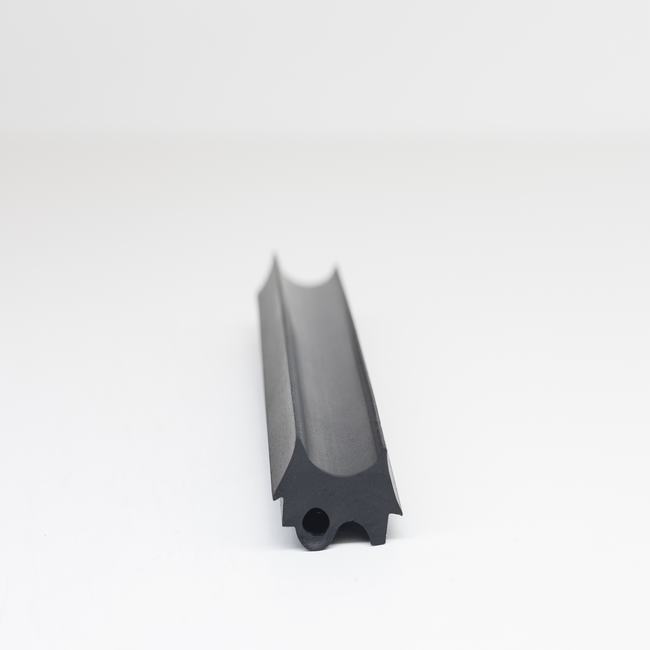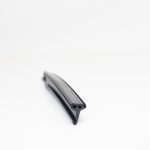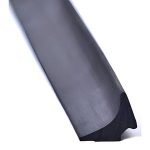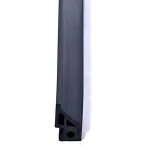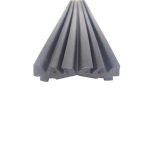Industrial seals are critical components in various industrial applications, providing essential functions like preventing leaks, controlling fluid flow, and maintaining the integrity of mechanical systems. They come in a wide range of types, materials, and designs to suit the specific needs of diverse industries. Here’s a detailed description of industrial seals:
- Purpose:
Industrial seals are designed to perform a variety of functions in industrial settings. Their primary purposes include:
- Leak Prevention: Seals create a barrier to contain or prevent the escape of gases, liquids, or particles, ensuring the integrity of the system.
- Fluid Control: They regulate the flow of liquids or gases, maintaining pressure, temperature, and flow rates within desired parameters.
- Contamination Protection: Seals shield the system from external contaminants, such as dust, dirt, and foreign particles.
- Component Separation: In some applications, seals are used to separate components, creating airtight or watertight barriers.
- Vibration and Noise Reduction: Seals can reduce vibrations and dampen noise in mechanical systems.
- Types:
Industrial seals encompass a wide variety of types to address specific needs:
- O-Rings: Circular seals typically made of rubber or elastomers, used in various dynamic and static applications.
- Gaskets: Flat or shaped seals, often made of materials like rubber, cork, or metal, used to seal the junction between two parts.
- Mechanical Seals: Complex assemblies used to seal rotating shafts in pumps, compressors, and other equipment.
- Lip Seals: Used in rotating shaft applications, such as in engines, to prevent the escape of lubricants.
- Rotary Seals: Designed for rotary or reciprocating shafts and are often used in machinery, engines, and automotive applications.
- Hydraulic Seals: Used in hydraulic systems to prevent fluid leakage and maintain pressure.
- Pneumatic Seals: Designed for pneumatic systems to ensure proper air pressure and prevent leaks.
- Diaphragm Seals: Used to isolate and protect pressure sensors in corrosive or high-temperature environments.
- Bearing Isolators: Protect bearings from contamination and extend their lifespan in industrial machinery.
- Valve Stem Seals: Used in valves to prevent the escape of fluids or gases.
- Materials:
Industrial seals are fabricated from a wide range of materials, each chosen based on its compatibility with the application’s requirements:
- Rubber and Elastomers: Common materials for O-rings, gaskets, and lip seals due to their flexibility and sealing properties.
- Metal: Used in applications requiring high temperatures and pressure resistance.
- Plastics: Used in various seals, especially in chemical and food processing industries, due to their corrosion resistance.
- Composite Materials: Combine the advantages of multiple materials, such as rubber and fabric or metal and rubber.
- PTFE (Polytetrafluoroethylene): Known for its low friction and chemical resistance, making it ideal for various seal types.
- Fiber and Paper: Used in gaskets for specific applications due to their sealing properties.
- Installation:
Proper installation is crucial to the effectiveness of industrial seals. It involves cleaning the mating surfaces, ensuring proper alignment, applying suitable lubrication or adhesives, and torquing fasteners to the recommended specifications. - Maintenance:
Regular inspection and maintenance are necessary to ensure the continued functionality of industrial seals. Damaged or worn seals should be promptly replaced to prevent leaks and system failures. - Benefits:
Industrial seals offer a multitude of advantages, including:
- Efficiency: They optimize the performance of mechanical systems and reduce energy consumption.
- Reliability: Seals contribute to the overall reliability and longevity of equipment and machinery.
- Safety: By preventing leaks and maintaining system integrity, they enhance workplace safety.
- Environmental Compliance: Seals are often crucial in maintaining compliance with environmental regulations by preventing fluid leakage and contamination.
- Applications:
Industrial seals find applications in a wide range of industries, including manufacturing, automotive, chemical processing, oil and gas, food and beverage, pharmaceuticals, and more. They are used in pumps, valves, engines, hydraulic systems, and many other mechanical and fluid-handling systems.
In summary, industrial seals are indispensable components in industrial settings, serving various critical functions like leak prevention, fluid control, and contamination protection. They come in numerous types and materials, necessitate proper installation and maintenance, and offer benefits such as efficiency, reliability, and safety. Their applications span across a multitude of industries and are vital for the smooth operation of industrial equipment and systems.
